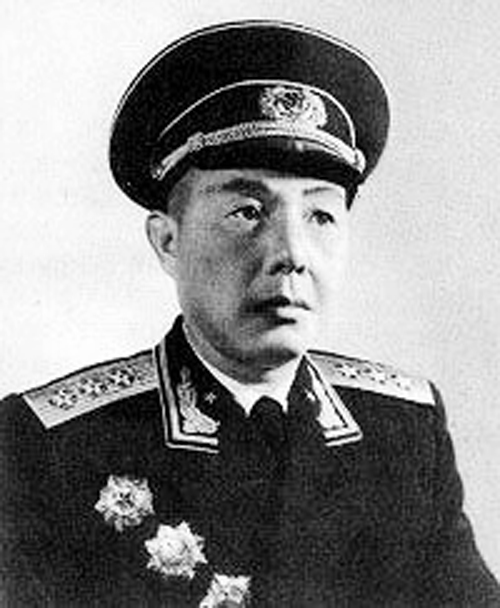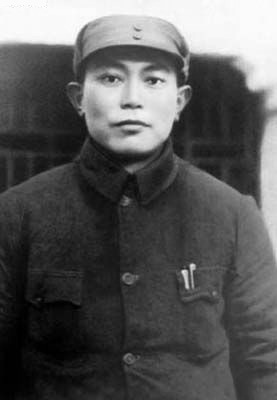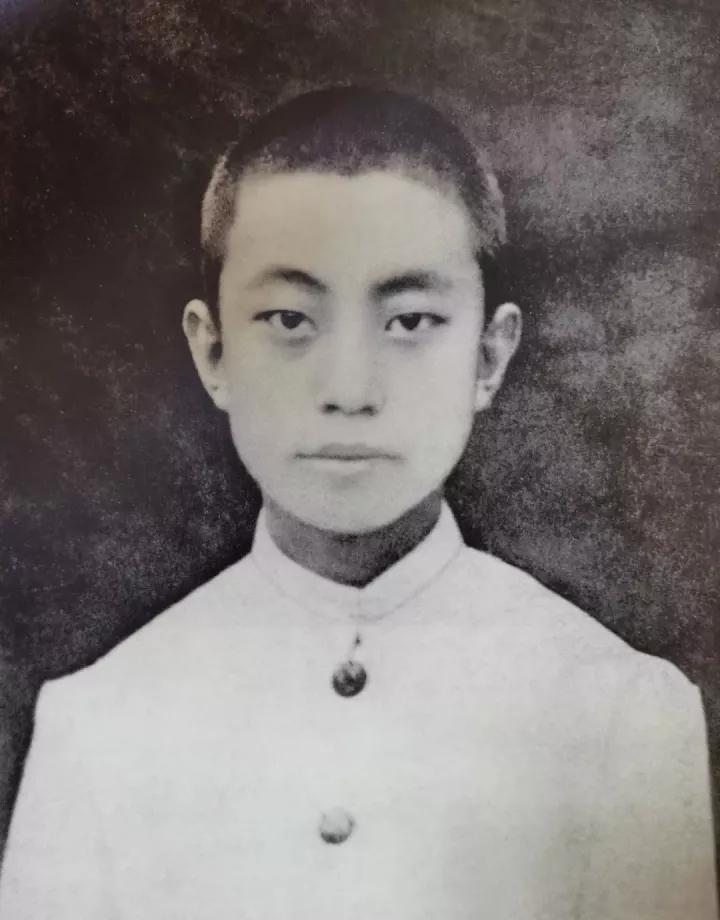|
10th Politburo Of The Communist Party Of China
The 10th Politburo of the Chinese Communist Party was elected at the 1st Plenary Session of the 10th Central Committee on August 30, 1973, consisting of 21 members and 4 alternate members. There were additions to the membership in 1973 and 1977. It was informally supervised by the Politburo Standing Committee of the Chinese Communist Party. It was preceded by the 9th Politburo of the Chinese Communist Party. Members (21) # Mao Zedong, Chairman of the Party Central Committee and member of the Politburo Standing Committee (died in September 1976) # Zhou Enlai, Vice Chairman of the Party Central Committee and member of the Politburo Standing Committee (died in January 1976) # Wang Hongwen, Vice Chairman of the Party Central Committee and member of the Politburo Standing Committee (arrested in October 1976; dismissed in July 1977) # Kang Sheng, Vice Chairman of the Party Central Committee and member of the Politburo Standing Committee (died in December 1975) # Ye Jianying, Vice C ... [...More Info...] [...Related Items...] OR: [Wikipedia] [Google] [Baidu] |
Politburo Of The Chinese Communist Party
The Politburo of the Chinese Communist Party, formally known as the Political Bureau of the Communist Party of China Central Committee and known as the Central Bureau before 1927, is the decision-making body of the Chinese Communist Party (CCP). Currently, it is a group of 24 top officials who oversee the CCP and headed by the general secretary. Unlike politburos of other Communist parties, power within the Chinese politburo is further centralized in the Politburo Standing Committee, a group of 7 individuals from among the larger Politburo. The Politburo is nominally elected by the Central Committee. In practice, however, scholars of Chinese elite politics believe that the Politburo is a self-perpetuating body, with new members of both the Politburo and its Standing Committee chosen through a series of deliberations by current Politburo members and retired Politburo Standing Committee members. The current and former Politburo members conduct a series of informal straw polls to de ... [...More Info...] [...Related Items...] OR: [Wikipedia] [Google] [Baidu] |
Wei Guoqing
Wei Guoqing (; Zhuang: Veiz Gozcing; 2 September 1913 – 14 June 1989) was a Chinese government official, military officer and political commissar of Zhuang ethnicity. He served as the Chairman of Guangxi from 1958 to 1975 and on the Chinese Communist Party's Politburo (1973–1982) and as Director of the People's Liberation Army's General Political Department (1977–1982). Wei was one of the few members of the 9th, 10th, 11th and 12th Central Committees (1969–1987) and the 10th through 12th politburos not purged during the Great Proletarian Cultural Revolution (GPCR) or Deng Xiaoping's backlash. He was also a Vice Chair of the National People's Congress Standing Committee (1975–1989) and of the Chinese People's Political Consultative Conference (1964–1983). Biography Wei was born in Donglan, Guangxi, to a poor Zhuang minority family. He joined the Chinese Red Army at the age of 16 (1929) and the CPC in 1931. He rose to the rank of battalion commander in the Sev ... [...More Info...] [...Related Items...] OR: [Wikipedia] [Google] [Baidu] |
Su Zhenhua
Su Zhenhua (; June 2, 1912 – February 7, 1979), born Su Qisheng (蘇七生), was a Chinese Communist general and politician. He fought for the Communists in the Chinese civil war. After the founding of the People's Republic, Su became an admiral in the People's Liberation Army Navy, the Party Secretary of Guizhou province, the First Secretary of Shanghai, and a member of the Politburo of the Chinese Communist Party. Su was born in Pingjiang County, Hunan province. Su joined a guerrilla fighting force in 1926 at age 14, and entered the Communist Youth League three years later. He joined the Red Army in June 1930 and the Communist Party several years later. He participated in the Long March and was instrumental in the Communist takeover of Zunyi. He then served successively in a series of roles as political commissar. In December 1949, following the Communist takeover of Guizhou province, Su became the Party Committee Secretary of Guizhou.徐行,《明報月刊》 (''Ming P ... [...More Info...] [...Related Items...] OR: [Wikipedia] [Google] [Baidu] |
Wu Guixian
Wu Guixian (; born 1938) is a Chinese politician who served as China's first female vice premier from January 1975 to September 1977. Originally a worker at a state-owned cotton factory in Xianyang, she was appointed by party leader Mao Zedong after becoming the factory's deputy director and a member of the Central Committee of the Chinese Communist Party. Early life and career Wu was born in Gongyi, Henan Province to a large peasant family of farmers consisting of nine siblings. In the wake of the Chinese famine of 1942–43 the family fled to Xianyang, Shaanxi where her father found temporary work. To earn the family more money Wu joined a cotton factory recruitment program in 1951 at the age of 13. Child labour laws at the time mandated recruits be at least 16 however Wu lied about her age and began work at a state-owned textile factory in the city. A few years later in 1955 she joined the Chinese Communist Youth League and soon after the Chinese Communist Party at the age ... [...More Info...] [...Related Items...] OR: [Wikipedia] [Google] [Baidu] |
Yao Wenyuan
Yao Wenyuan (January 12, 1931 – December 23, 2005) was a Chinese literary critic, a politician, and a member of the Gang of Four during China's Cultural Revolution. Biography Yao Wenyuan was born in Zhuji, Zhejiang, to an intellectual family. His father, Yao Pengzi () was a writer, translator and art critic. He began his career in Shanghai as a literary critic, where he became known for his sharp attacks against colleagues, such as in June 1957 against the newspaper '' Wenhuibao''. Since that time, he began to closely collaborate with leftist Shanghai politicians, including the head of the city's Propaganda Department, Zhang Chunqiao. His article "On the New Historical Beijing Opera 'Hai Rui Dismissed from Office, published in ''Wenhuibao'' on November 10, 1965, launched the Cultural Revolution. The article was about a popular opera by Wu Han, who was deputy mayor of Beijing. Zhang Chunqiao and Jiang Qing feared the play could be counter-revolutionary because parallels ... [...More Info...] [...Related Items...] OR: [Wikipedia] [Google] [Baidu] |
Li Xiannian
Li Xiannian (pronounced ; 23 June 1909 – 21 June 1992) was a Chinese Communist military and political leader, President of the People's Republic of China (''de jure'' head of state) from 1983 to 1988 under Paramount Leader Deng Xiaoping and then Chairman of the Chinese People's Political Consultative Conference from 1988 until his death. He was a full member of the Politburo from 1956 to 1987, and of its Standing Committee from 1977 to 1987.''Li Xiannian (1909–1992)'', in Christopher R. Lew, Edwin Pak-wah Leung: ''Historical Dictionary of the Chinese Civil War'', p.p. 120-121, Scarecrow Press, 2013Holley, David"Li Xiannian, Ex-President of China, Dies at 83: Old Guard: He was one of a ruling clique of ‘8 elders’ who ordered the army to repress the pro-democracy movement in 1989".''Los Angeles Times'', 23 June 1992. Li worked as an apprentice carpenter in his teenage years to support his family. He joined the Communist Party in December 1927 and became a soldier in th ... [...More Info...] [...Related Items...] OR: [Wikipedia] [Google] [Baidu] |
Chen Xilian
Chen Xilian (pronounced ; 4 January 1915 – 10 June 1999) was a Chinese military officer and politician, general of the People's Liberation Army. A prominent Maoist, he held very important positions in both military and political spheres. Following acclaimed participation in many battles during both the Second Sino–Japanese War and the Chinese Civil War, Chen served as Mayor and Military Governor of Chongqing from 1949 to 1950 and Central Commander of PLA Artillery from 1950 to 1959. He then commanded the Shenyang Military Region (1959–73) and, crucially, the Beijing Military Region (1973–80). Additionally, Chen was a full member of the Politburo (1969–80) and Vice Premier (1975–80). After Mao's death, Chen was one of Hua Guofeng's most significant supporters, along with Wang Dongxing and Li Xiannian. When Deng Xiaoping gradually rose to power, Chen lost his powerful posts, but was allowed to retire without harm. Early military career and Sino–Japanese War Chen ... [...More Info...] [...Related Items...] OR: [Wikipedia] [Google] [Baidu] |
Chen Yonggui
Chen Yonggui (; circa 1915 – 26 March 1986) was a Chinese politician. Though he was an illiterate peasant, he became a member of the Politburo of the Chinese Communist Party and Vice Premier of the People's Republic of China because of Mao Zedong's recognition of Chen's leadership, during the Cultural Revolution, in turning Dazhai into a model for socialist agriculture. According to official record of the Xiyang County in Shanxi Province, from 1967–1979, under Chen's leadership, the county completed 9,330 projects of agricultural and hydraulic infrastructure construction, extending the total arable land by 98,000 mu (around 16,144 acres), but at the cost of 1,040 casualties including 310 deaths. After Deng Xiaoping initiated the Reforms and Opening up of China in the late 1970s, Chen gradually lost power and resigned in September 1980. He died of lung cancer in Beijing in 1986. Early years Chen Yonggui was born in around 1915 (self-reported as 14 February 1915, the date ... [...More Info...] [...Related Items...] OR: [Wikipedia] [Google] [Baidu] |
Wang Dongxing
Wang Dongxing (; 9 January 1916 – 21 August 2015) was a Chinese military commander and politician, famous for being the chief of Mao Zedong's personal bodyguard force, the 9th Bureau of the Ministry of Public Security (which included the ''8341 Special Regiment''). Wang held many important positions, both in the Chinese Communist Party (CCP) and the government; he was Deputy Minister of Public Security in 1955–1958 and again in 1960–1970 and notably served as CCP Vice Chairman from 1977 to 1980, under Chairman Hua Guofeng. Wang and his trusted security force played a very significant role in ending the Cultural Revolution by arresting the Gang of Four;Wang Dongxing obituary: Politician who was bodyguard to China’s former leader, Mao Zedong< ... [...More Info...] [...Related Items...] OR: [Wikipedia] [Google] [Baidu] |
Wu De
Wu De (; February 5, 1913 – November 29, 1995), born Li Chunhua (), was a Chinese Communist revolutionary and politician of the People's Republic of China. He served in provincial-level leadership positions in Pingyuan Province, Tianjin municipality, Jilin Province, and Beijing municipality, and was a member of the Politburo of the Chinese Communist Party from 1973 to 1980. After the Cultural Revolution, Wu was a key supporter of Hua Guofeng and was forced out of politics after Deng Xiaoping ousted Hua from his leadership position. Communist revolution Wu joined the Chinese Communist Party in 1933, and organized strikes and other workers' actions in the Tangshan area. After the eruption of the Second Sino-Japanese War, he organized the Hebei Anti-Japanese Army, committing it to guerrilla warfare in the northern regions. In 1940 he was appointed head of a working commission under the Central Committee of the Chinese Communist Party to oversee activity behind enemy lines. After the ... [...More Info...] [...Related Items...] OR: [Wikipedia] [Google] [Baidu] |
Ji Dengkui
Ji Dengkui (; 17 March 1923 – 13 July 1988) was a prominent Chinese political figure during the Cultural Revolution. He was a member of the 10th and 11th Politburos of the Communist Party and was a protégé of Mao Zedong in Mao's later years. He served in a number of important government and military posts, including member of the Central Military Commission, Political Commissar of the Beijing Military Region, and Vice Premier of the State Council. After Mao's death in 1976, he supported Mao's designated successor, Hua Guofeng, in purging the Gang of Four. Two years later, Deng Xiaoping ousted Hua from his leadership position, and Ji, labelled the "Little Gang of Four" together with other prominent Hua supporters, was forced out of politics. Early life Ji Dengkui was born in Wuxiang County, Shanxi province on 17 March 1923. After the eruption of the Second Sino-Japanese War in 1937, he joined the anti-Japanese resistance before turning 15, and the Chinese Communist Party ... [...More Info...] [...Related Items...] OR: [Wikipedia] [Google] [Baidu] |
Hua Guofeng
Hua Guofeng (; born Su Zhu; 16 February 1921 – 20 August 2008), alternatively spelled as Hua Kuo-feng, was a Chinese politician who served as Chairman of the Chinese Communist Party and Premier of the People's Republic of China. The designated successor of Mao Zedong, Hua held the top offices of the government, party, and the military after the deaths of Mao and Premier Zhou Enlai, but was gradually forced out of supreme power by a coalition of party leaders between December 1978 and June 1981, and subsequently retreated from the political limelight, though still remaining a member of the Central Committee until 2002. Born and raised in Jiaocheng, Shanxi, Hua was educated at the Jiaocheng County Commercial School and joined the Chinese Communist Party (CCP) in 1938, seeing action in both the Second Sino–Japanese War and the Chinese Civil War as a guerrilla fighter.Ye Yonglie, 邓小平改变中国——1978:中国命运大转折 (Deng Xiaoping Changed China-1978: China ... [...More Info...] [...Related Items...] OR: [Wikipedia] [Google] [Baidu] |




